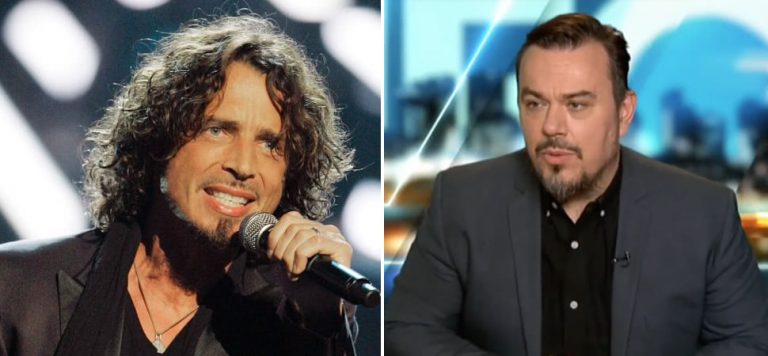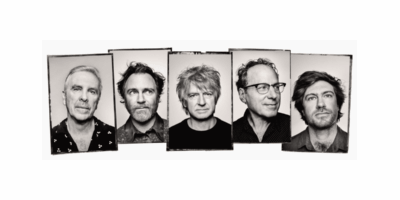In the wake of Chris Cornell’s tragic and untimely passing, many musicians have come together to speak about how Cornell’s music has affected their lives, and to touch on the huge hole that his absence will leave upon the music industry. Likewise, many others are using his death as an opportunity to highlight the crucial issues that musicians are facing, and are heavily affecting their personal and mental health.
Speaking to The Project last night, Shihad’s Tom Larkin gave a rather stark insight into the problems that musicians are facing these days. When asked if he was surprised by the nature of Cornell’s death, Larkin responded with a mix of emotion and fact. “On one hand it is shocking, when anyone who has been an icon for you, or a leader goes away; death is hard to take any time,” he began.
“Insofar as some of the research I’ve done around working with artists, the idea that artists’ life expectancy is in fact very short, meant that his death has not actually come as a shock. The research shows, and there’s been studies done across UK and the EU, and in the United States, that the average age of death for a musician is around 57.”
Further questions were put forward, including whether this means that the general public are not doing enough to protect our musicians. “Music itself attracts people whose way of operating, and their kind of creative gifts, also have another side,” he responded. “It means that they’re more sensitive, and they’re more likely to be overwhelmed, and particularly overwhelmed by aspects of life, that others are more resilient and able to take in their stride, can often knock someone who’s sensitive and creative, right over.”
“Add to that fact the environment of the music industry is in fact a brutal one, and it’s brutal in terms of he kinds of psychological climate that it can have, the permissiveness around drug and alcohol use, and also economically. For instance, in Australia, 80% of all musicians exist under the minimum wage. The general population has this statistic of 1 in 5 have a propensity towards mental illness, or depression and anxiety, and actually with musicians its 1 in 3. So we’re talking about a very vulnerable group of people who are in a very high-stress and anxious environment, and its tough to survive long-term.
Host Waleed Aly made note of the ironic fact that Cornell was quite critical during his life of celebrity worship, in particular, worship of popular musicians who die young. Aly then posed the question of how exactly should Cornell be remembered, considering this.
“One of the biggest myths around artistic creativity is the idea that you’ve got to be miserable to tell great stories, or you’ve got to be crazy in order to make great art,” Larkin responded. “The fact remains that it’s not quite true. What happens is that people who are miserable create very little art, it’s only when they get some clarity or some perspective on that misery that they’re able to see something else and see the story that they’ve lived through and then create that art.”
“But the bottom line is that most creative people need clarity and health in order to produce great work, and that’s the thing I’d like to see change and come out of this.”
If you or somebody you care for needs help or information about depression, suicide, anxiety, or mental health issues, contact Beyond Blue on 1300 22 4636 or Lifeline on 13 11 14.


































